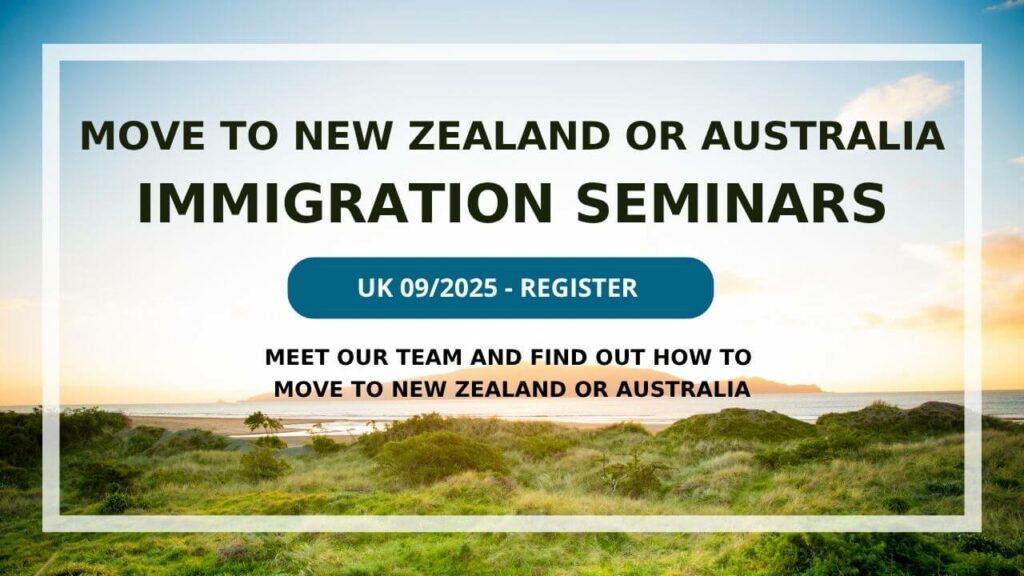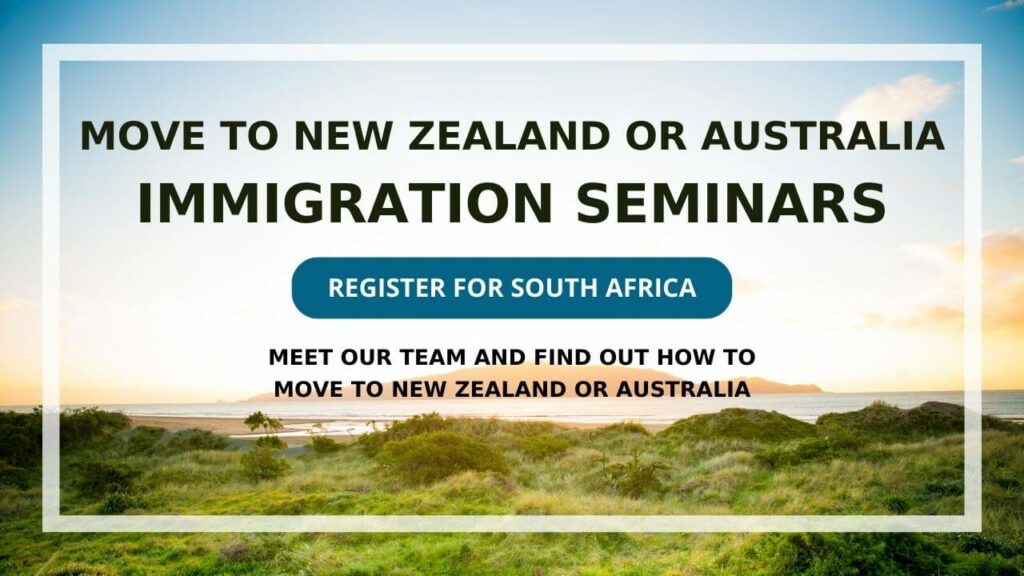Immigration New Zealand is issuing a warning to triangular employers about the potential breaches of employment agreements and immigration accreditation rules if they place migrant workers with another triangular employer.
What has triggered this warning?
It has come to the attention of Immigration New Zealand that a few triangular employers have been engaging in the practice of placing their migrant workers with other triangular employers, who may then place these workers elsewhere. This practice is concerning for several reasons:
- Responsibility of Triangular Employers: Triangular employers are obligated to ensure the safety and proper employment conditions of their workers when they are placed with a controlling third party. This responsibility includes having an effective plan to monitor the working conditions of their employees.
- Compromise of Employment Agreements: By placing a worker with another triangular employer, the original employment agreement may be compromised. The employment terms and conditions that were agreed upon could be at risk of being violated.
- Risk to Monitoring Plan: The monitoring plan, which is a requirement under immigration instructions, may not function effectively if a worker is placed with another triangular employer. Without proper monitoring, there is a risk of non-compliance with immigration rules.
- Potential Consequences: If triangular employers are found to be engaging in this practice, they risk facing infringements. Moreover, their accreditation status could be suspended or even revoked, which would impact their ability to employ migrant workers in the future.
What must triangular employers do to be compliant?
Triangular employers must have robust systems to monitor the employment and safety conditions of any controlling third parties with whom they place migrant workers. Ensuring the welfare and rights of migrant workers is critical, and triangular employers must comply with immigration regulations to maintain their accreditation.
Triangular Employers Must:
- Have Monitoring Systems: Implement effective systems to regularly monitor the employment conditions and safety of the controlling third parties to ensure compliance with the employment agreement and immigration rules.
- Respond to Issues: Promptly and appropriately address any issues raised or identified that may affect the migrant workers' rights, safety, or employment conditions.
- Place Migrant Workers with Compliant Businesses Only: Only place migrant workers who hold Accredited Employer Work Visas (AEWV) with third-party businesses that meet compliance standards.
This compliance also means that a triangular employer must not place a worker with another controlling third party employer.
Ensuring compliance
Triangular employers must maintain detailed records for each Accredited Employer Work Visa (AEWV) holder they place with a controlling third party. These records are crucial for compliance with immigration regulations and to ensure that all employment conditions are being met.
Records Must Include, But Are Not Limited To
- Start and Finish Dates: The exact dates when the AEWV holder starts and finishes their placement with each controlling third-party organization.
- Working Locations: The specific locations where the AEWV holder is assigned to work during their placement.
- Hours Paid: The number of hours for which the AEWV holder is paid, including any overtime or other payments.
- Hours Worked: The actual hours worked by the AEWV holder, including detailed tracking of hours for those who are on a salary. This helps ensure that salaried workers are not working excessive hours without appropriate compensation.
By keeping accurate and up-to-date records of these details, triangular employers can demonstrate compliance with immigration and employment regulations and provide evidence that migrant workers are being treated fairly and in accordance with their employment agreements. This also aids in any audits or inspections by Immigration New Zealand and helps in addressing any potential issues promptly.
The risks for non-compliance
Placing a migrant worker with another controlling third-party employer can lead to serious consequences for triangular employers. This practice can potentially resulte in:
- An Infringement Being Issued: If Immigration New Zealand identifies that a migrant worker has been placed with another controlling third party in breach of the rules, an infringement notice may be issued to the triangular employer. This could result in fines or other penalties.
- Suspension or Revocation of Accreditation: The employer's accreditation may be suspended or revoked if they are found to be non-compliant with their accreditation requirements.
How a triangular employer should monitor the safety of their staff
When applying for accreditation, triangular employers must include a documented plan outlining how they will monitor the safety and employment conditions of migrant workers.
This plan is a key part of demonstrating compliance
This plan is a key part of demonstrating compliance with immigration and employment standards.
Requirements for the Monitoring Plan
- Documented Plan for Monitoring: The plan must be comprehensive and clearly outline how the employer will ensure the safety and fair treatment of migrant workers placed with controlling third parties.
- Complaints and Resolution Process: The employer must have a documented complaints and resolution process that addresses how any issues raised by migrant workers or others will be managed and resolved. This document can be uploaded with the accreditation application to support compliance.
The Monitoring Plan Must Include
- Pre-Placement Checks:
- NZBN Verification: A procedure for verifying that the controlling third party has a valid New Zealand Business Number (NZBN).
- Labour Inspectorate Stand Down List: A process to check that the controlling third party is not listed on the Labour Inspectorate Stand Down List, which identifies businesses banned from hiring migrant workers due to past breaches of employment standards.
- Declarations from the Controlling Third Party:
- The plan must detail how the employer will obtain written declarations from the controlling third party before placing AEWV holders. These declarations should confirm that key personnel within the third party do not have any pending employment or immigration breaches or cases that could lead to such breaches.
- Agreement for Immigration New Zealand Site Visits:
- The plan must state that the employer will secure an agreement from the controlling third party allowing Immigration New Zealand to conduct site visits. The controlling third party must also agree to maintain detailed records of the employment conditions and provide these records to the triangular employer as needed.
By including these elements in the documented monitoring plan, triangular employers will strengthen their accreditation applications, demonstrating their commitment to compliance and to safeguarding the rights and well-being of migrant workers.
Checklist before placing an AEWV holder with a third party
As a triangular employer seeking to place Accredited Employer Work Visa (AEWV) holders with controlling third parties, you must adhere to stringent requirements to ensure the safety, fair treatment, and compliance of all parties involved. The following measures are required to maintain accreditation and compliance with Immigration New Zealand’s guidelines:
Obligations for Assessing and Monitoring Controlling Third Parties
- Assessment of Third-Party Documentation:
- Workplace Bullying Prevention: Evaluate the third party's processes to prevent and address workplace bullying, including a clear complaints process for AEWV holders to report bullying and a procedure for addressing and resolving reported issues.
- Risk Prevention and Assessment: Review the third party's risk management documentation, including a comprehensive risk register that identifies and mitigates potential risks.
- Health and Safety Induction: Assess the third party's health and safety induction processes to ensure they provide adequate safety training and information to the workers.
- Provide Key Information to Third Parties:
- Visa Conditions and Employment Terms: Inform the controlling third party of the AEWV holders' specific visa conditions and the terms and conditions of their employment to ensure compliance.
- Assessment of Complaints and Disputes Resolution Process:
- Review the Third Party’s Complaints and Disputes Process: Ensure that the third party has a robust complaints and disputes resolution process that aligns with legal and regulatory requirements.
- Guidance for AEWV Holders:
- Provide a Complaints Process: Offer AEWV holders a clear process and guidance to report any issues directly to you, the triangular employer.
- Obtain Key Declarations from the Controlling Third Party:
- No Stand-Down or Ban: Get a written declaration that the third party and its key personnel are not subject to a stand-down period or permanent ban for specific offences under the Immigration Act or Crimes Act. The third party must also agree to inform you if they are prosecuted for any such offences after AEWV holders have been placed.
Additional Requirements for Compliance
- Site Visit Agreement:
- Agreement for Site Visits by Immigration New Zealand: Ensure there is a formal agreement between you and the third party that allows Immigration New Zealand to carry out site visits. The third party must also agree to maintain relevant records and provide them to you upon request.
- Declarations on Work Conditions and Standards:
- Work Hours Consistent with Visa Conditions: Obtain a declaration that the third party will not require or force the AEWV holder to work hours that are inconsistent with their visa conditions.
- Health and Safety Compliance: Get a declaration that the employment terms and conditions of the AEWV holders align with health and safety standards.
- NZBN Verification and Stand-Down Check:
- Confirm Third Party Compliance: Check that the controlling third party has a valid New Zealand Business Number (NZBN) and is not on the Labour Inspectorate Stand Down List for breaches of employment standards.
- Declarations on Employment and Immigration Compliance:
- Check for Breaches or Pending Cases: Obtain declarations from the controlling third party that their key personnel do not have employment and immigration breaches or pending cases that could lead to such breaches before placing AEWV holders.
These measures are essential for every controlling third party where an AEWV holder is to be placed. By adhering to these guidelines, triangular employers can ensure compliance with Immigration New Zealand’s regulations, maintain their accreditation, and provide a safe and fair working environment for migrant workers.
As a triangular employer placing Accredited Employer Work Visa (AEWV) holders with controlling third parties, you must perform ongoing checks and take proactive measures to ensure compliance with employment and safety standards. This includes maintaining regular contact with workers, conducting site visits, addressing issues, and taking appropriate action when necessary.
Ongoing Contact with AEWV Holders
- Regular Contact Requirements:
- Initial Contact Frequency: Maintain contact with AEWV holders at least once per fortnight for the first two months of their placement.
- Subsequent Contact Frequency: After the initial two months, contact AEWV holders at least once per month.
- More Frequent Contact Where Appropriate: Increase the frequency of contact if the placement is less than a month or if there is an ongoing dispute or a complaint that needs to be resolved.
Site Visit Requirements
- Regular Site Visits:
- Standard Site Visit Frequency: Conduct site visits every six months to the controlling third party to assess compliance with employment and safety conditions.
- Reduced Site Visit Frequency: If there is evidence showing that the risk of the third party breaching requirements is low, you may conduct site visits less frequently or not at all.
Investigating and Addressing Issues
- Investigating Employment and Safety Issues:
- Address Issues Proactively: Investigate any employment or safety issues that arise. This may involve working closely with the controlling third party to resolve these issues.
- Removing Migrants if Necessary: If the issues cannot be resolved or if there are serious concerns, consider removing AEWV holders from the controlling third party.
- Implementing Actions to Resolve Issues:
- Seek External Help When Needed: For issues that cannot be resolved internally, seek external help, such as involving mediators or legal experts.
- Report Significant Breaches: Report any significant breaches of employment or safety standards to the relevant authorities, such as the Labour Inspectorate or WorkSafe New Zealand.
- Ensure Compliance: Ensure that all actions taken are in line with legal obligations and aim to protect the rights and well-being of the AEWV holders.
By maintaining regular contact, conducting site visits, and promptly addressing any employment or safety issues, triangular employers can ensure compliance with Immigration New Zealand's requirements, maintain a positive work environment for migrant workers, and uphold their accreditation status.


